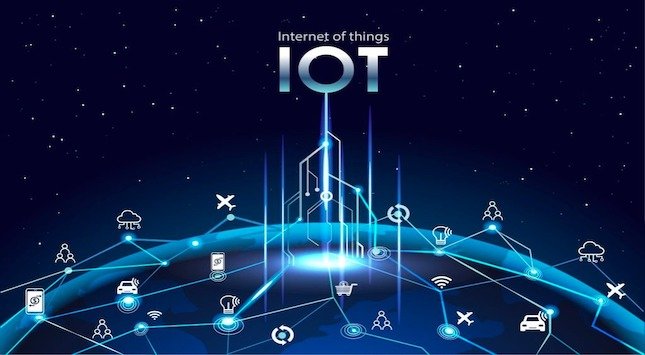By 2025, there will be 70 billion Internet-connected devices, up from approximately 10 billion. This prediction comes from Cisco. The Internet of Things, which connects an increasing number of devices to the Internet, is responsible for this increase.
Things that are “smart,” including cameras, door locks, toys, thermostats, etc., which can be controlled and monitored by smartphones, are either already on the market or being developed. Gartner, Inc. estimates that by 2025, the Internet of Things will bring in an additional $309 billion for suppliers of goods and services.
Consumer shopping habits are quickly being altered by technology. Retailers with a forward-thinking mindset have already begun implementing cutting-edge technological innovations to keep up with changing consumer expectations and interactional patterns.
According to the McKinsey analysis, the IoT could affect retail environments’ economies by $410 billion to $1.2 trillion annually!
What is IoT Payment?
As you approach the gas station, imagine that your connected car’s dashboard prompts you to authorize a fuel payment.
Future IoT payments could take the form of an AgriTech system ordering supplies and paying for water when certain conditions are met, or they could take the form of a wearable medical device sharing your prescription and payment information with a smart pharmacy vending machine.
According to Medici Global, this new market for machine-to-machine (M2M) transactions will reach $27.62 billion by 2023. Despite the fact that some of this income will come from payments currently made through other channels (e. g. As the examples below show, new payments will also appear as credit cards are replaced by in-vehicle digital wallets.
You May Like to Read: Best Budget Gaming Phones
IoT Payment Revolution in the Retail Payment Sector
The Internet of Things (IoT), especially in the retail payment sector, is bringing about a revolution in a few intriguing ways.
- Using wearable chips, in-store payment automation allows customers to simply pick up their purchases and leave the store while their cards are being charged.
- Intelligent carts – Based on the items added to the cart, automatically calculate the purchase amounts.
- iOT-enabled stores can send a personalized welcome message as soon as a customer enters the store by spotting their mobile device. Through personalized recommendations, they can offer a more connected in-store experience.
- Smart Gift Cards are reloadable mobile apps that give customers gifts when they sign up or on their birthdays. Businesses like Starbucks and Dunkin Donuts have already started using them.
The advancements in the IoT field promise to have a greater impact on various industries and their capacity to develop new revenue streams. If these innovations are brought into businesses with the assistance of effective IoT services it would add new dimensions of growth.
- The Internet of Things will drive the growth of the payment services industry. Businesses like MasterCard or Visa will see significant gains with non-cash transactions. More devices, like the Apple Watch, with payment capabilities, will mean more payment endpoints and, consequently, more revenue for these businesses.
- These companies that handle electronic payments have also started to improve the security of wearables and all Internet-connected devices.
- A pair of sensors introduced by Libelium, a supplier of wireless sensor network technology, can track data about consumer profiles and behaviors. Usage-based models for payment tracking systems are already being developed. For gyms, public transportation, or theme parks, these sensors can simplify the processing of payments based on location or duration of activity.
Wrapping Up
Future trends indicate that “Payment by Things” will soon become a reality. The consumers’ thoughts about security are still mixed, though. The flaws in connected devices are clear, but finding solutions is not so simple.
Despite the fact that personal computer security has become more standardized over time, smart device security is still not quite up to par. Many people concur that a set of standards promoting IoT adoption and implementation would be beneficial.
As the Internet of Things expands, efforts have already started in this direction. Through a recent partnership, Intel and Broadcom are focusing heavily on enabling secure and mobile payments.
Life will change due to the Internet of Things, and it will be an exciting time to live in.

